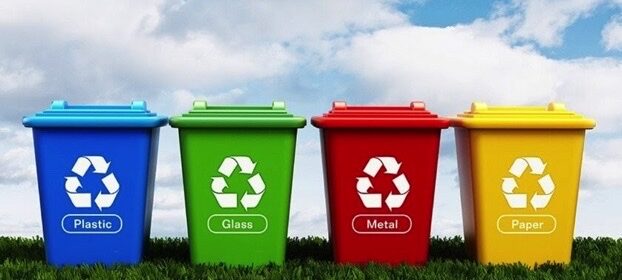Learning about Hard-to-Recycle Materials: Athens CHaRM

SOHAWM SENGUPTA – Hard-to-recycle materials is a classification of ‘items that can’t be recycled at the curb or at the ACC recycling drop-off sites due to their chemical composition, hazardous components, size, shape, etc’ as outlined by Athens CHaRM. These materials include lead batteries, wood pallets, Styrofoam as well as a wide variety of other materials that have detrimental impacts on the environment.
The difficulty with recycling many of these items is that they are considered mixed materials. For example, a plastic water bottle may seem like an obvious choice for the recycling bin. However, most water bottles use various types of plastics for the body and the cap and cause ensuing issues with separation that have costly interventions. While this example is quite elementary and can be fixed with a simple process of separating the cap from the body, mixed materials such as padded envelopes can be nearly impossible to recycle as they are extremely difficult to separate into the individual component parts. Another material that is often found at centers for hard-to-recycle materials is glass. One reason for its difficulty to recycle can be traced due to its weight and fragility. Because of these, it can be very costly to transport large amounts of glass between facilities as well as processing the glass in recycling systems. Broken drinking glass is a common waste product produced in households, and it required to be placed in trashes rather than recycling now due to its stark differences in chemical nature from recyclable glass. Because of these many factors, centers for hard-to-recycle materials are becoming more prevalent.
Athens CHaRM is the Athens affiliate of the overseeing nonprofit, Live Thrive. This program aimed to combat worsening environmental health works by redirecting and reusing thousands of pounds of household hazardous waste, bulky trash, and other hard-to-recycle items in the Metro-Atlanta area. CHaRM aims to clean up landfills and water systems by allowing for proper disposal and infrastructure required for disposing of hard-to-recycle. These centers are able to accept a wider range of items than typical curbside recycling, and they remove of the waste in a more efficient matter that is more eco-conscious. In doing so, hazardous materials are kept out of the air, water, and soil, improving the health of the environment.
The Athens CHaRM facility currently has very few full-time employees and relies greatly on part-time workers as well as volunteers to maintain its massive workload. Outside of trying to improve environmental health, Athens CHaRM aims to educate others about the importance of properly disposing of hard-to-recycle products. To learn more about Athens CHaRM and about their mission, follow this link and begin to educate yourself today!
Copy Editor: Stephen Joseph
Photography Source: https://www.tehrantimes.com/news/450933/Waste-recycling-can-generate-10b-in-value-added-products
